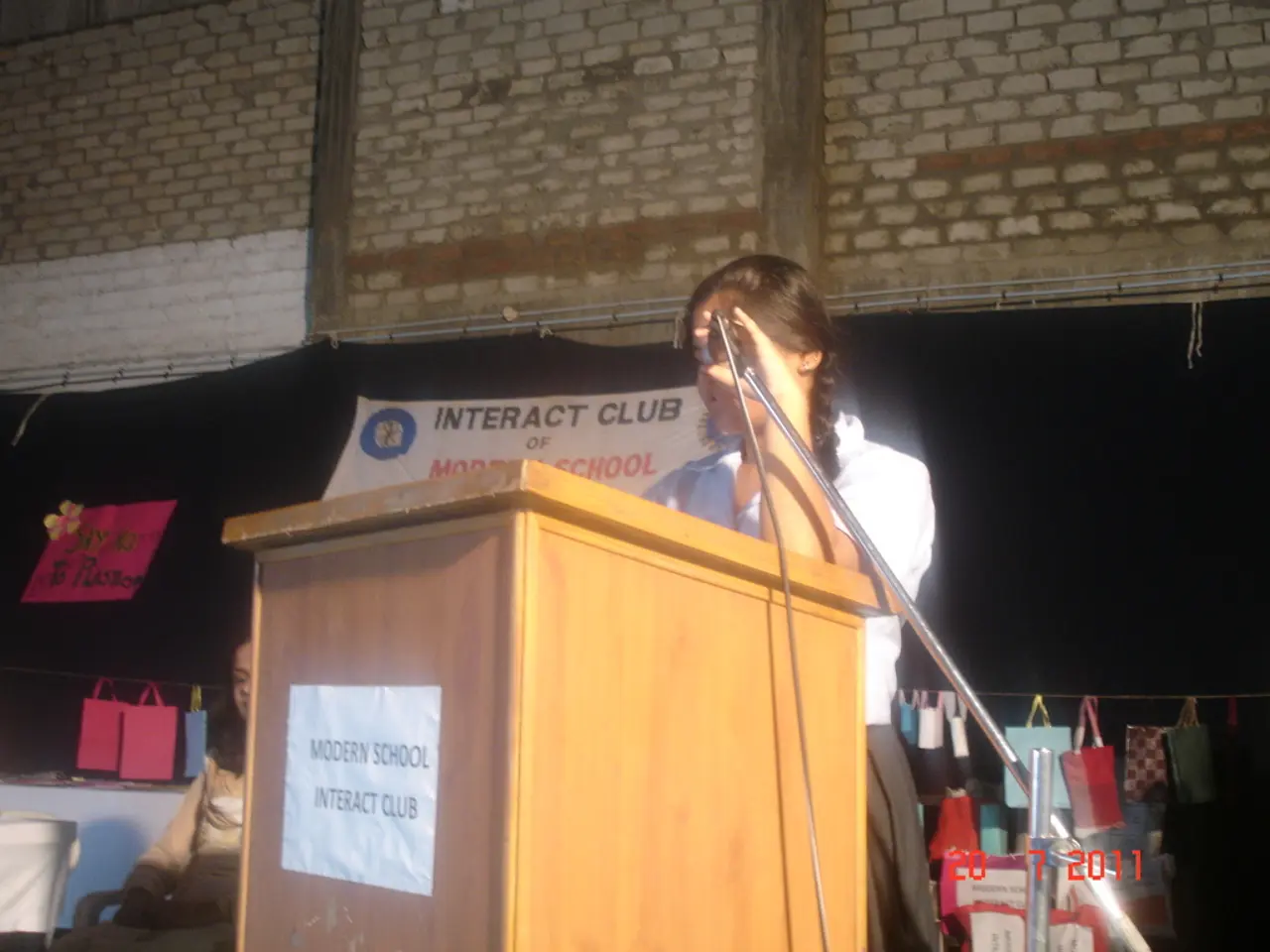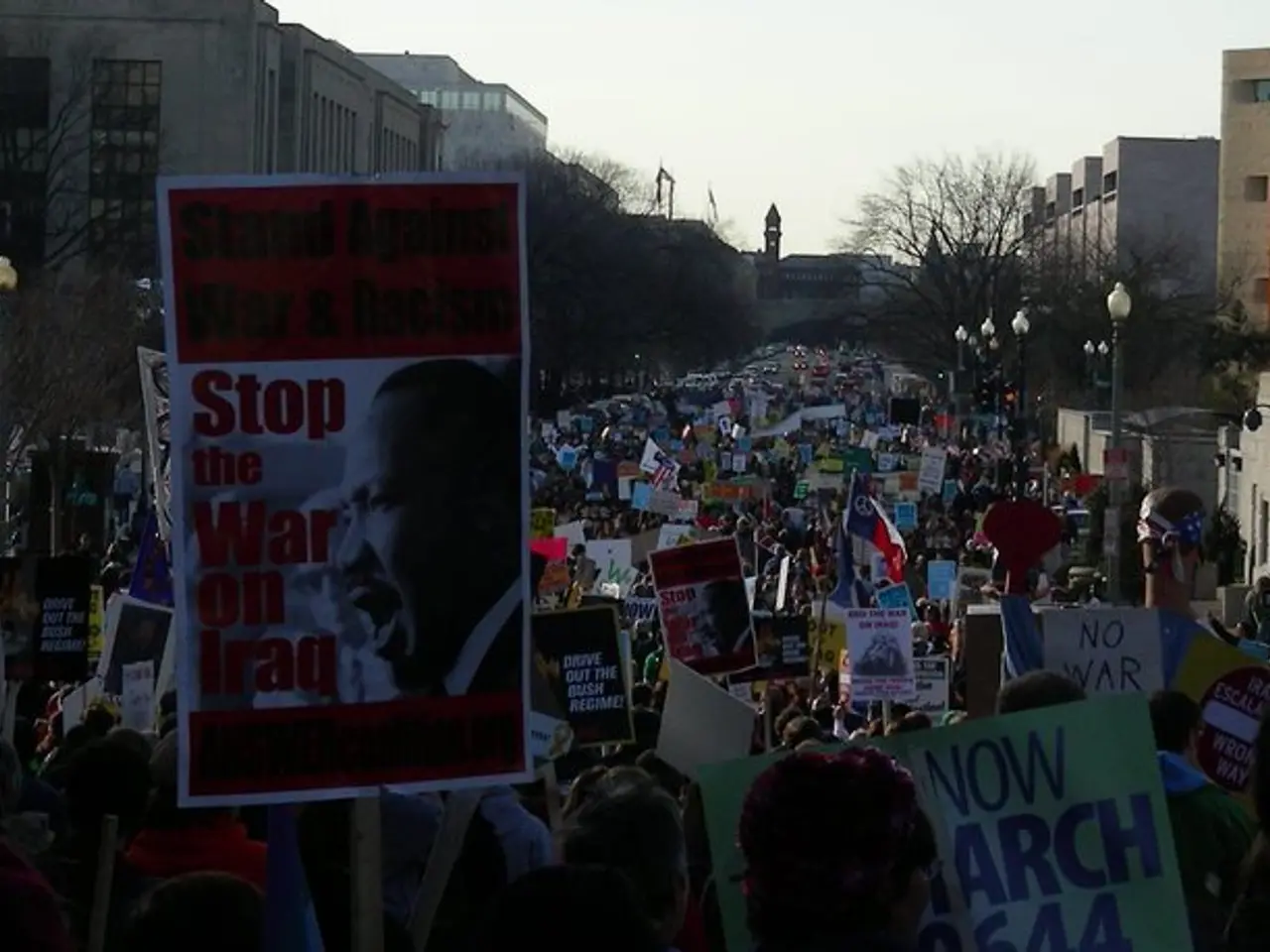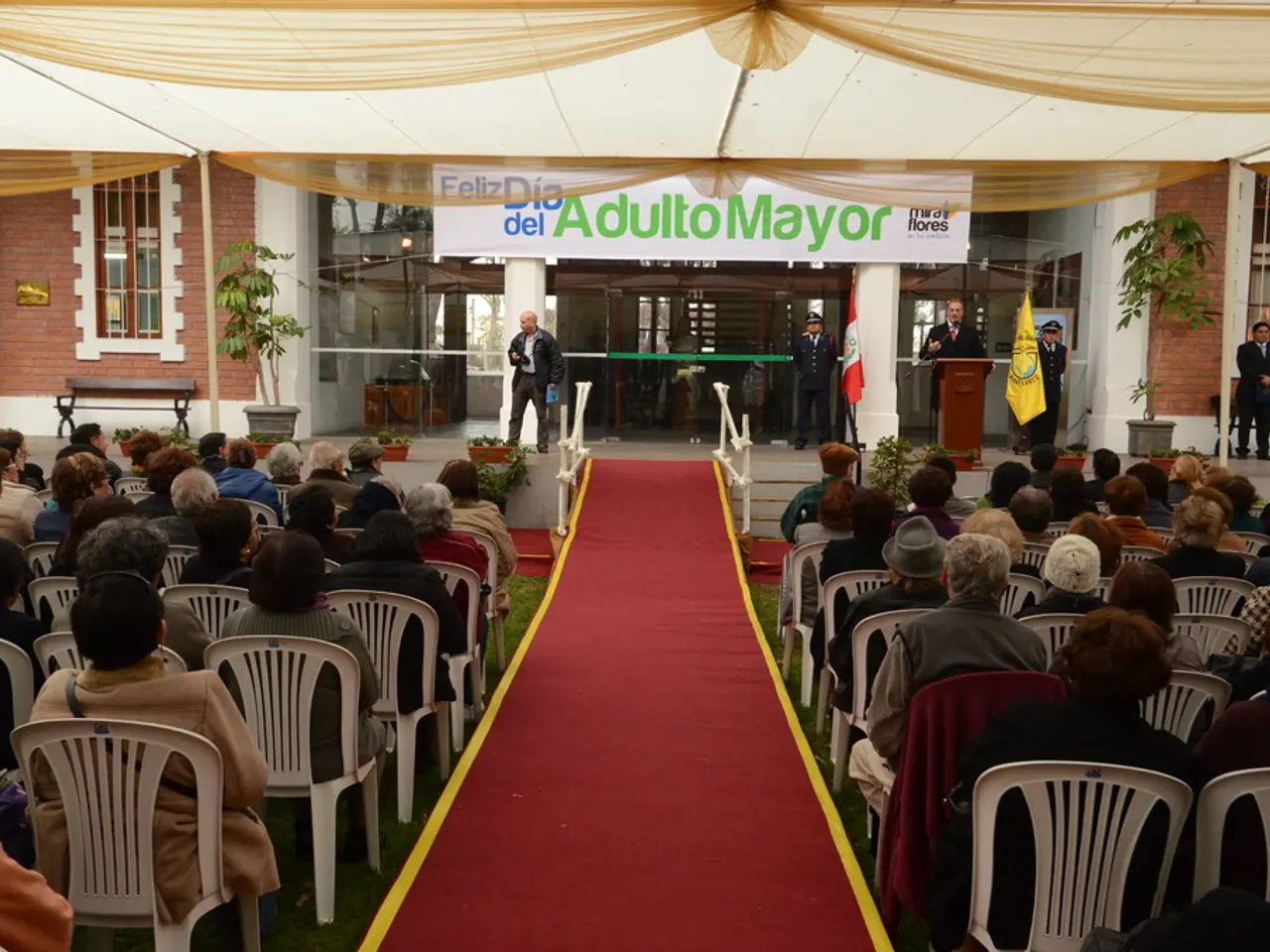USA Foils Ukraine Statement at G7 Summit: A Deep Dive
US impedes adoption of Ukraine declaration at G7 summit meeting - G7 summit: United States vetoes Ukraine's proposed declaration
Get ready for a lively rundown of the latest global politics! The recently concluded G7 Summit had quite a twist - USA laying veto on a statement with fiery language against Russia, which the remaining six nations, namely Germany, France, Italy, Britain, Japan, and Canada, backed.
While Donald Trump, our beloved 45th president, was away, the US delegation courageously blocked the statement. Guess where our president was? Yep, dealing with the Middle Eastern chaos!
Volodymyr Zelensky, the Ukrainian President, was there as a guest, hoping for a face-to-face with Trump before the NATO summit in The Hague. Sadly, that didn't happen because our president decided to leave a day early.
German Chancellor Friedrich Merz, CDU member, seemed pretty pleased with the summit upon returning to Berlin. Why? Well, apparently, there was a consensus among the industrialized nations to keep supporting Ukraine militarily. Mark Carney, Canada's Prime Minister, even promised additional military aid to Kyiv in the billions!
But there's more! The Europeans were pushing for tougher sanctions against Russia, but Trump had already nixed that idea on the first day of the summit. Merz returned to Germany with a hint of optimism, hoping for decisions to impose further sanctions against Russia in the coming days.
Instead of focusing on Ukraine, the G7 countries published six other joint statements on migration, artificial intelligence, and critical raw materials. They agreed to leverage "secure" and "trustworthy AI" to boost economic growth.
The summit was overshadowed by the military clash between Israel and Iran. Trump, upon his return, upped his tone against Iran, demanding "surrender" from Tehran. There were also whispers about a potential US military intervention.
Merz showed sympathy towards Israel's attacks on Iran. According to him, the Israelis were doing the dirty work for the western allies. On the first day of the summit, the G7 countries called for de-escalation in the conflict, but they also emphasized Israel's right to defend itself and stressed that Iran must never possess a nuclear weapon.
Trump's early departure also hindered Merz's plan to convince the US President, in collaboration with French President Emmanuel Macron and Italian Prime Minister Giorgia Meloni, to soften his stance in the trade dispute with the EU. Trump, during his return flight, expressed discontent with the EU, stating they were still just talking and hadn't yet offered him a fair deal. The deadline for an agreement is July 9.
Insights:
- Canada pledged a whopping CAD 2 billion in new military aid to Ukraine, which includes several types of military equipment and enhanced bilateral cooperation[1][3][4].
- Canada also announced new sanctions targeting Russia, focusing on companies helping Russia bypass existing restrictions and more than 200 ships in Russia’s shadow fleet[1][3].
- Germany remains committed to providing military support to Ukraine, with Chancellor Merz confident that pressure on Russia will grow due to sustained backing[1].
- In a joint statement, the G7 supported diplomatic efforts to end the war and emphasized increased pressure on Russia to halt its aggression[1].
[1] https://www.bbc.com/news/world-61966280[3] https://www.cnn.com/2023/06/28/politics/ukraine-canada-aid/index.html[4] https://www.reuters.com/world/europe/canada-pledges-up-to-500-million-to-support-ukraine-2023-06-28/[5] https://www.reuters.com/world/g7-summit-yields-less-unified-response-global-challenges-2023-06-28/
Keywords:
- USA
- Ukraine
- Russia
- Canada
- G8 Summit
- Germany
- France
- Italy
- Britain
- Japan
- Iran
- Israel
- Donald Trump
- Friedrich Merz (CDU)
- Military Support
- Sanctions
- NATO Summit
- The Hague
- Trade Dispute
- Diplomatic Efforts
- Despite the European Union's continued involvement in the negotiations regarding the accession of multiple countries, such as the Czech Republic and Hungary, the focus of the G7 Summit was predominantly on the situations in Ukraine, Russia, and the Middle East.
- Amidst war-and-conflicts, policy-and-legislation, and general-news discussions during the G7 Summit, the European Union also sought to impose tougher sanctions against Russia, although these plans were initially nixed by the USA.





